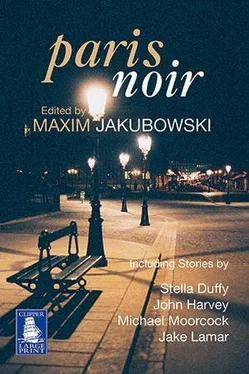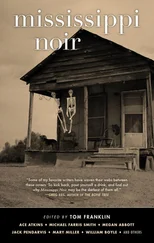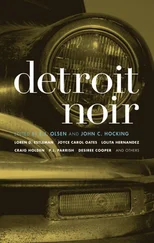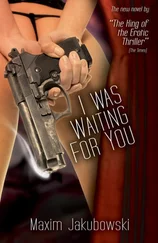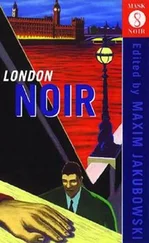Maxim Jakubowski - Paris Noir
Здесь есть возможность читать онлайн «Maxim Jakubowski - Paris Noir» весь текст электронной книги совершенно бесплатно (целиком полную версию без сокращений). В некоторых случаях можно слушать аудио, скачать через торрент в формате fb2 и присутствует краткое содержание. Жанр: Детектив, на английском языке. Описание произведения, (предисловие) а так же отзывы посетителей доступны на портале библиотеки ЛибКат.
- Название:Paris Noir
- Автор:
- Жанр:
- Год:неизвестен
- ISBN:нет данных
- Рейтинг книги:3 / 5. Голосов: 1
-
Избранное:Добавить в избранное
- Отзывы:
-
Ваша оценка:
- 60
- 1
- 2
- 3
- 4
- 5
Paris Noir: краткое содержание, описание и аннотация
Предлагаем к чтению аннотацию, описание, краткое содержание или предисловие (зависит от того, что написал сам автор книги «Paris Noir»). Если вы не нашли необходимую информацию о книге — напишите в комментариях, мы постараемся отыскать её.
Edited by Maxim Jakubowski, the stories range from quietly menacing to spectacularly violent, and include contributions from some of the most famous crime writers from both sides of the Atlantic, as well as the other side of the Channel.
Paris Noir — читать онлайн бесплатно полную книгу (весь текст) целиком
Ниже представлен текст книги, разбитый по страницам. Система сохранения места последней прочитанной страницы, позволяет с удобством читать онлайн бесплатно книгу «Paris Noir», без необходимости каждый раз заново искать на чём Вы остановились. Поставьте закладку, и сможете в любой момент перейти на страницу, на которой закончили чтение.
Интервал:
Закладка:
For forty-five years, since he was a kid, he had worked for a man he refers to as the ‘Big Man’. The Big Man was a ‘facilitator’, someone who would do the dirty jobs legitimate companies and countries would not. If a bribe was needed to keep an oil company drilling in a third world country after a coup, the man would make it happen. If an inconvenient person threatened to make trouble, the Big Man made sure the person disappeared. Of course, the Big Man never touched the money or the bodies himself. The cabbie did that, travelling on false passports and under false identities, never who or where he was supposed to be.
He tells her the Big Man got his start at the hands of his father, who did similar work in North Africa when it was still French and colonial, making contacts that spanned the continent. The cabbie, in turn, had followed his own father into employment with the Big Man before they all returned to France. He had been stripped of his identity at an early age and groomed to be invisible, effective, and completely beholden to his masters.
He has a powerful need to impress her, she realises, to be the Big Man, to be recognised after years of anonymity. In the moment, she can’t figure out how to exploit this to her advantage. Should she flatter him, be sympathetic, or be mildly disdainful? She’s never been good at this.
The driver babbles on. He first hatched the plan because he was getting tired of all the travelling, not to mention the danger. There was a dispute with another lieutenant in the Big Man’s organisation, and the Big Man himself was putting more and more distance between them – not that he minded. He now hated the Big Man. Everything he did, the way he spoke, the way he walked, the way he ate, mouth open, talking, crumbs spraying around him, was annoying. He began to feel like he was losing position, and that this might lead to his own ‘disappearance’. So he went with the flow, caused no trouble, plotting, looking for his chance.
She doesn’t believe a word of it now. He’s crazy, or full of shit, she thinks, until he starts going into detail. There’s a poison he liked to use – ricin, because it’s lethal in small doses, easily obtainable and virtually untraceable. Sometimes he had to shoot men, though, and contrary to what you see in the movies, a silencer doesn’t completely silence a gun. But if you put a condom over the barrel before you shoot, that absorbs the remaining sound-
As he talks, her terror grows. Around her neck, her scarf seems to tighten on its own. It would be too easy to strangle her like this, so when he is looking at the road, she slowly pulls it off, inch by inch, into her pocket, where she feels her digital camera.
He tells her about specific victims and dates and places, and she is able to piece this together with news stories she’s read. Now she believes him.
‘I have killed people whose deaths nobody will want to investigate. It would shine too much light into too many dark corners. I have made it look like an accident. I have stolen money nobody knows exists, except for people who cannot admit to it. I’m not even here. It’s perfect.’
They are outside the city now. She is his next perfect crime.
Or maybe not. When she sees him pull into the Bois de Vincennes and into a dark wooded area, she turns her camera on in her pocket. The battery was low when she left the Hotel du Nord, but she is sure she can get one good flash out of it.
As soon as he parks, she flashes the rear-view mirror, temporarily blinding the man, then throws her scarf over his neck, pulls it tight with every ounce of strength she has. At her wrist, the camera swings on its strap.
The attack catches him by surprise and this gives her a moment to consolidate her strength, tightening the scarf more and twisting it to stop his gurgled attempts to scream. He struggles, jerks his body forward and sideways, trying to turn around. Then he tries to aim the gun over his shoulder at her, while reaching for the scarf with his free hand. She manoeuvres her arm in front of the gun and is able to knock it away from her head. He loses his grip on the gun and drops it. She holds on. Her leather gloves give her a good grip. He goes limp.
But she doesn’t let go. She holds on until she is sure that be is, at the very least, unconscious. She unlocks her door, then manually unlocks his and gets out. She takes the bullets out of the gun, puts them under his seat and the empty gun in his pocket. She grabs her purse and pops the trunk, dragging his body out and along the ground to the back, where she slumps his torso into the trunk before heaving his legs in. Carefully, she removes her scarf from the neck of the man, without checking to see if he is dead or not. She doesn’t care to know. She only checks that she has all her things and no blood on her.
When she is about to close the trunk, her eye catches on the faint glint of shiny leather. It is a valise, wedged under the man’s foot next to a spare can of petrol. She carefully opens the petrol and pours it on the body and the back seat of the car, thinking this might fuck with any DNA evidence, though she doesn’t know how. Does it even matter? There have probably been a hundred people through this cab in the last week and, anyway, nobody knows she is here. She is ‘black’ in France and there is no reason to suspect her of involvement in this, part of a larger crime that cannot be investigated.
The valise is locked, so she takes it with her, closes the trunk, and begins walking. Later, she will jimmy the lock open, find the valise full of cash, and count it – 100,000 euros in small, nonsequential bills.
For now, she heads towards the Château de Vincennes Métro station. It’s almost 5 a.m. She feels great. It has occurred to her that a) she may have committed the perfect crime and b) she now has the whole 50 euros and no cab fare to pay. ‘Picked up the wrong girl,’ she thinks. ‘Fucked with the wrong girl. Your perfect crime, my ass.’
The first Métro comes within the hour and she vanishes into the crowd of bleary-eyed morning commuters, looking, with her valise, just like one of them.
HEATWAVE by DOMINIQUE SYLVAIN
Lieutenant Blaise Reyer walked into his office and felt like turning round and walking straight out again. Three offensively colourful guys were clustered in front of his desk. They were wearing cyclists’ helmets, hallucinogenic jerseys and skin-tight cycling shorts, and were all talking at once. Who to, Reyer wondered, since I’m not there? That morning. Reyer had shaved his head, but not his beard. He’d had nightmares all night and looked more than ever like a former KGB apparatchik who’d gone into some dodgy business. He skirted four gleaming bicycles, parked casually in the corridor, slipped between the merry cyclists and found, brazenly sitting in his chair, his number one enemy of the moment, the excessively young and excessively polite Lieutenant Zaraoui.
‘Am I seeing things or are you taking over my job, Khaled?’
‘Morning Blaise, the chief wants us to work as partners on this case.
‘And as you weren’t in yet…’
As partners. But I don’t want to partner anybody, thought Reyer, regaining possession of his chair and his desk.
‘What case? The Tour de France stick-up?’
The multicoloured trio looked at Reyer as if he were speaking Martian. The lieutenant took the opportunity to study them. One was tall and fair-haired, another tall and dark-haired, the other short and dark. They were all approaching forty, but not a hint of paunch. Reyer instinctively pulled in his stomach and looked at the ID cards laid out before him. Mathieu Grémond, the tall fair-haired guy, Philippe Lancel, the tall dark one, and Paul Perroux, the runt. Addresses scattered between Bastille and République.
Читать дальшеИнтервал:
Закладка:
Похожие книги на «Paris Noir»
Представляем Вашему вниманию похожие книги на «Paris Noir» списком для выбора. Мы отобрали схожую по названию и смыслу литературу в надежде предоставить читателям больше вариантов отыскать новые, интересные, ещё непрочитанные произведения.
Обсуждение, отзывы о книге «Paris Noir» и просто собственные мнения читателей. Оставьте ваши комментарии, напишите, что Вы думаете о произведении, его смысле или главных героях. Укажите что конкретно понравилось, а что нет, и почему Вы так считаете.
